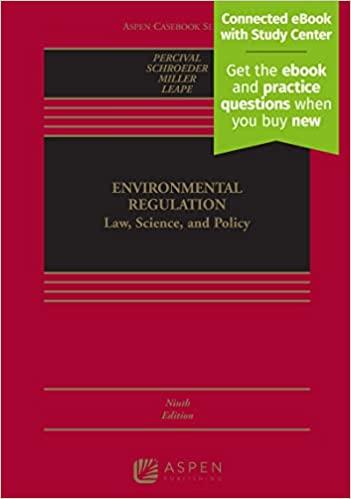Question
Case in Point: Two fishers owned their own fishing boats, and fished for herring. One of the fishers learned of a halibut license that was
Case in Point:
Two fishers owned their own fishing boats, and fished for herring. One of the fishers learned of a halibut license that was available, but his boat was too large for the license. He informed his friend, who owned a smaller boat, and his friend obtained the license. The two men shared the cost of the license on the understanding that the owner of the larger boat could have his money back at any time if he decided not to crew on this friend's boat.
They also agreed to equally share in the expenses and profits from fish caught under the license when they fished together. Some years later, the owner of the larger boat obtained his own license for halibut, but also claimed to be an equal partner with his friend under his license.
The court held that no partnership existed, since the owner of the larger boat did not share expenses or profits on those occasions when he did not crew on his friend's boat. The court held that the plaintiff was only entitled to a return on his share of the cost of the license.
See CanLII: Etheridge v. Sheaves, 1996 CanLII 1171 (BC SC); Etheridge v. Sheaves et al, 2004 BCSC 1751 (CanLII).
In this discussion assignment, you are required to:
- Post a response to the following two questions:
- Do you agree or disagree with the court's decision?
- Explain by providing your reasons.
- Read all of your classmates' initial posts and reply to one of them.
Step by Step Solution
There are 3 Steps involved in it
Step: 1

Get Instant Access to Expert-Tailored Solutions
See step-by-step solutions with expert insights and AI powered tools for academic success
Step: 2

Step: 3

Ace Your Homework with AI
Get the answers you need in no time with our AI-driven, step-by-step assistance
Get Started


